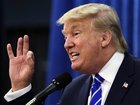The battle among billionaires for bragging rights as the world's richest person got heated Wednesday with the surprising surge of an old contender: Larry Ellison.
In a stunning few minutes after markets opened, stock in Ellison's Oracle Corp. rocketed more than a third, enough for him to temporarily wrest the title from its longtime holder Elon Musk and hand it to the software giant's co-founder.
 Full Story
Full Story
The head of Russia's state-owned gas company Gazprom says it has a deal to build a pipeline to China, but there are many unanswered questions about the details of the agreement.
 Full Story
Full Story
France's finances and politics are in turmoil. President Emmanuel Macron has just appointed a new prime minister — the fourth person to hold the job in the past 12 months. The deficit is out of control. Borrowing costs are rising. And parliament can't muster a majority to tackle spending.
It's a serious comedown for a major industrial power that has the second-largest economy in Europe.
 Full Story
Full Story
The Jounieh Touristic Port was reopened Tuesday evening under the slogan "Jounieh Touristic Port... A Sea of Opportunities," under the patronage of President Joseph Aoun, who was represented by Public Works and Transport Minister Fayez Rasamny, and at the invitation of MP Neemat Frem, as part of a joint initiative between the public and private sectors.
“Three generations are looking forward to this port. The sixties generation remembers the most beautiful times when Lebanon was the Switzerland of the East. There is the eighties generation, who see a different time when we could breathe towards the world only through it. Today's generation will see this port as the new, beautiful time, the new, and joyful Lebanon, a time that will attract tourists instead of ensuring the flight of citizens," Frem said in a speech.
 Full Story
Full Story
European Commission President Ursula von der Leyen delivers a major state of the union speech on Wednesday addressing the challenges facing the world's biggest trading bloc and laying out her vision for tackling them.
The commission has enthusiastically billed her speech — modeled on the annual State of the Union addresses to Congress by U.S. presidents — as "a milestone event for European democracy."
 Full Story
Full Story
U.S. President Donald Trump threatened Sunday to impose more sanctions on Russia, after the Kremlin unleashed its biggest-ever aerial barrage at Ukraine.
Russian missiles and drones rained down across Ukraine early Sunday, killing four people and setting government offices in the capital Kyiv ablaze.
 Full Story
Full Story
Eight key members of the OPEC+ alliance have agreed to again boost oil production, in a strategy analysts saw as a bid to gain a bigger market share of sales of crude.
Oil ministers in the V8 grouping -- comprising Saudi Arabia, Russia, Iraq, United Arab Emirates, Kuwait, Kazakhstan, Algeria and Oman -- decided Sunday to increase daily production by 137,000 barrels a day from next month, they said in a statement.
 Full Story
Full Story
The world's richest man could become its first trillionaire if Elon Musk hits a series of extremely aggressive targets for his electric car company over the next decade, according to a proposed pay package released by the company.
Tesla said in a regulatory filing Friday that it will hand Musk shares worth as much as 12% of the company in a dozen separate packages if the company meets certain performance targets, including massive increases in car production, share price and operating profit. If approved by shareholders, the new pay package could make Musk the world's first trillion dollar executive, and would mark a new level of outsized pay in a country already known for extreme compensation. But the payoff is in shares, not cash, and the goals are extreme as well.
 Full Story
Full Story
Australian Defense Minister Richard Marles on Friday toured a Japanese navy frigate of the same Japan-made model that Australia has chosen for its new fleet, as the two countries step up military ties to deter China's growing influence.
 Full Story
Full Story
Canadian Prime Minister Mark Carney is delaying a requirement for automakers to begin hitting minimum sales levels for electric vehicles next year as the sector deals with U.S. President Donald Trump's tariffs.
 Full Story
Full Story



